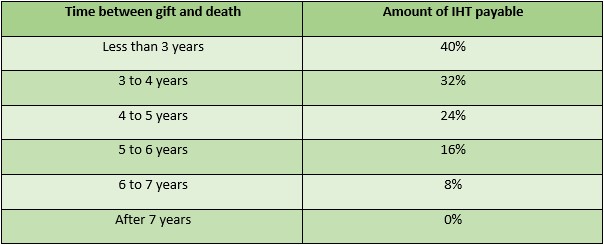How intergenerational planning could help you leave more money to loved ones
A recent study by Schroders Personal Wealth shows that nearly 8 out of 10 families do not have a strategy for passing wealth to loved ones. Despite this, nearly three-quarters (72%) of those over 60 plan to pass wealth to children after their death, and 13% say they would do it while alive.
It’s a similar story for grandparents, with 53% saying they would leave assets to grandchildren when they die and 12% saying they would do it while alive.
Not having a plan for passing on your wealth could cause it to be significantly reduced in value because of Inheritance Tax (IHT), which may be avoided with an intergenerational wealth strategy.
In addition, a strategy could provide more control over how your assets are passed on and even how they’re eventually used. Read on to discover what an intergenerational wealth strategy is, when you should create one and how a financial planner can help.
It’s a roadmap to maximise your IHT allowances to potentially reduce liability
Intergenerational planning means creating a long-term strategy that allows you to pass money on to your children, grandchildren, or other beneficiaries as tax-efficiently and smoothly as possible.
The sooner you create and start using the strategy the better, as you can make more use of the allowances and gifts that HM Revenue and Customs (HMRC) permits you to use to reduce any IHT liability.
Before we look at how intergenerational planning could achieve this, read about how IHT works and the amount you’re allowed to have in your estate before it’s charged.
IHT is a charge against your worldly possessions over a certain amount
Everyone has a nil-rate band (NRB), which is the amount your estate can be worth before IHT becomes due. In 2021/22, it stands at £325,000 a person or £650,000 if you’re married.
You may also use the residence nil-rate band (RNRB), which boosts a single person’s allowance to £500,000 and a married couple’s to £1 million, subject to certain regulations.
Reducing your wealth to below your NRB through gifting could be critical
One way to reduce or potentially negate an IHT liability is to reduce the value of your estate to below your NRB. Typically, this is achieved using the gifts HMRC allow you to make annually, which include:
- A total of £3,000. You can give this to an individual or split it between many people.
- An unlimited number of gifts of up to £250 each, from normal income.
- A £1,000 wedding gift to anyone, a £2,500 wedding gift to grandchildren, or a £5,000 wedding gift to your children.
- Gifts made from income. These can be for any amount as long as they’re regular, not from capital and do not affect your standard of living.
Beside these you could also use potentially exempt transfers (PETs). While this allows you to give unlimited amounts to anybody you like, you must then live for seven years before the gift falls outside of your estate.
If you do not, it could become liable to “taper relief”, which means IHT is due at a sliding scale depending on how long you’re alive for. The table below shows taper relief for 2021/22.

Source: Gov.uk
Creating a strategy as soon as possible could increase the chances of a PET’s success, as a 65-year-old is much more likely to survive seven years than an 85-year-old.
Intergenerational wealth strategies give you more control
As you create a strategy while you’re still alive, you could have more say about how your wealth is passed on and used.
One time this might be important, for example, is if you are concerned that a child or grandchild will not use the money responsibly and perhaps buy an expensive sports car instead of using it as a deposit for a house.
Having a strategy means you can discuss with them how you would like the funds to be used, and take action to ensure the money is used responsibly if needed. This might be by creating a trust, although these can have complicated tax rules, so speak to a financial planner to ensure it would be right for you.
You could gift money to beneficiaries when they need it more
Gifting to loved ones at a younger age means the money you provide could be of more use to them.
Passing money to your children or grandchildren through inheritance when they are older could mean they have become more financially secure and don’t need the money as much. If you pass assets to them when they are younger, and maybe trying to support a young family, your money could be of much greater value to them.
Gifting it to them earlier might mean they receive financial help when they have a mortgage and family to support, and get far more value from your gift.
Get in touch
Speaking with a financial planner as you create an intergenerational strategy can help ensure you make the most of the available gifts and reduce any IHT liability as much as possible. They can also join conversations with loved ones to help them understand the strategy and how it could benefit them.
Email us on info@harperlees.co.uk or call on 01277 350560 and we’d be happy to discuss your situation further.
Please note
A pension is a long-term investment. The fund value may fluctuate and can go down, which would have an impact on the level of pension benefits available. Your pension income could also be affected by the interest rates at the time you take your benefits.
